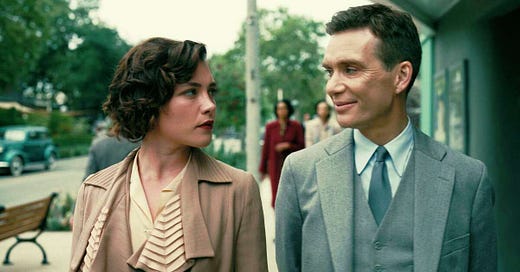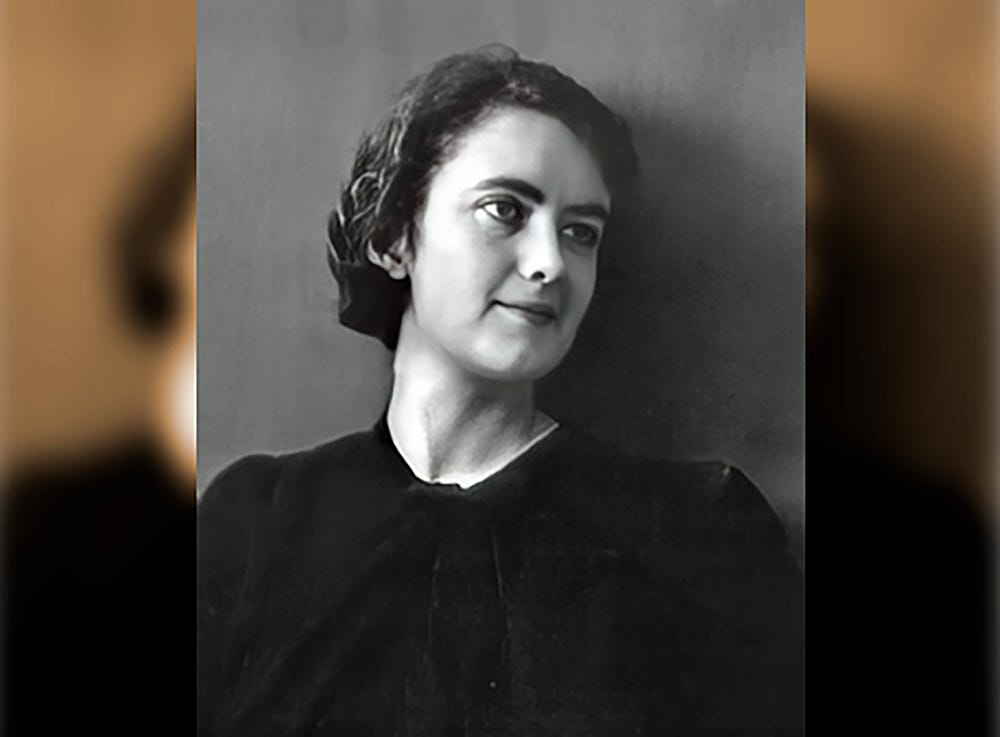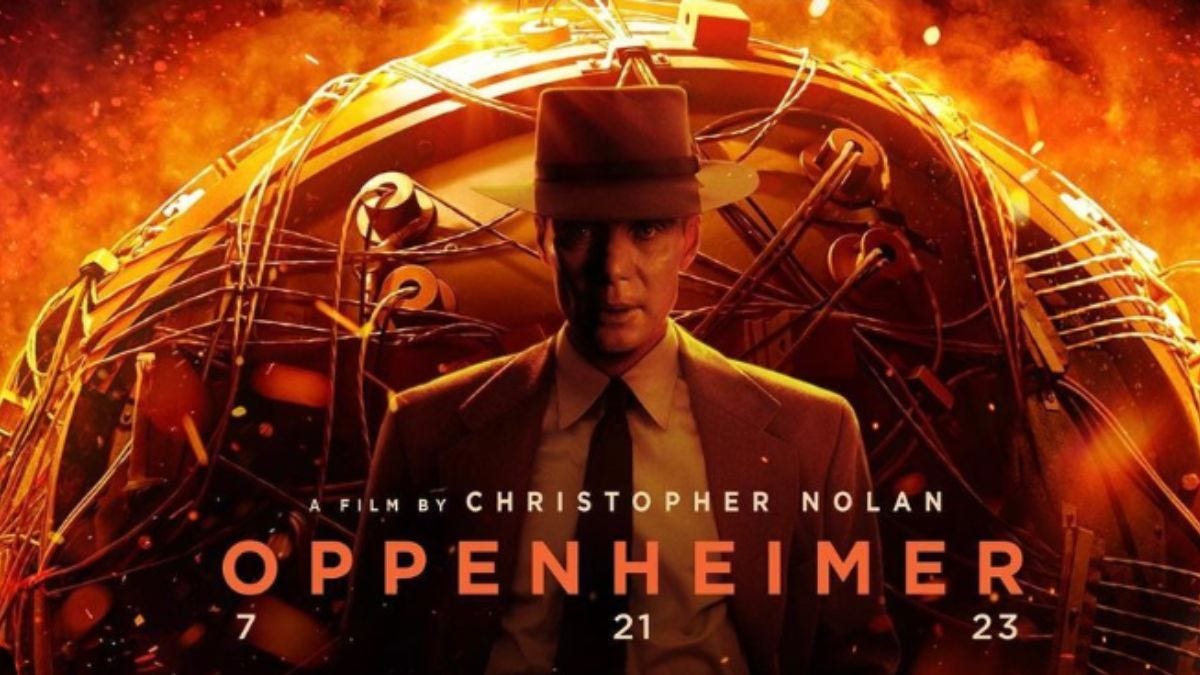The Secret Diary of Jean Tatlock: Oppenheimer's First and Last Love
Please note that the diary mentioned in the title is a fictional construct, and the story is in form of a first-person narration & although based on true events, is not an actual historical document.
In the captivating world of academia, I, Jean Tatlock, found myself drawn to the luminous presence of J. Robert Oppenheimer, a brilliant physicist whose very being ignited a fire within my soul. As fate would have it, we met at one of Mary Ellen Washburn1's enchanting gatherings, where intellects roamed freely, and ideas flowed like rivers.
Oppie, as they fondly called him, arrived at the Berkeley campus in 1929, setting his sights on a future of unraveling the universe's mysteries. From my abode on Shasta Road, I could see the sparkling waters of the San Francisco Bay, and little did I know that the winds of destiny were about to change the course of my life.
The atmosphere at Mary Ellen's gatherings was always alive with animated discussions, and it was there that our gazes met, sparking a connection that felt like a cosmic collision. Oppenheimer's sharp intellect and ever-present cigarette intrigued me, drawing me closer to the flame of his brilliance.
In the realm of academia, Oppie shone like a star, luring talents from far and wide to join him in his pursuit of unraveling the universe's mysteries. His ever-present cigarette seemed to smolder like the embers of his brilliant mind, leaving a trail of questions and curiosity in its wake.
Our love story unfolded in the shadows of greatness and tumultuous emotions. Oppie was captivated by my brilliance and effervescence, and I was enamored by his. We became an intellectual power couple, engaging in stimulating debates that left other scholars in awe.
Amidst our love story, there lay a turbulent undertow. My heart battled with periods of darkness, but Oppenheimer was my guiding light, offering solace and support during my battles with depression. In the moments of our celestial dance, he would often turn to the holy Bhagavad Gita when facing ethical and moral dilemmas, finding wisdom and solace within its sacred verses. Our love became a dance of intertwining love and pain, where each step brought us closer to understanding the depths of our souls.
Image released by Universal Pictures shows Florence Pugh as Jean Tatlock, left, and Cillian Murphy as J. Robert Oppenheimer in a scene from "Oppenheimer."
Over the course of three tumultuous years, Oppie and I experienced a love that burned like a blazing star, engaging in an intricate dance of engagements, breakups, and reconciliations. Robert Serber, a close friend of Oppenheimer's, observed our passionate and volatile relationship, revealing that I would cut off contact with him for weeks or even months, only to return and taunt him about my encounters with others. Perhaps, deep down, I knew the intensity of his love for me, and in my confusion and turmoil, I couldn't help but hurt him with my words.
Looking back, it becomes evident that some of this emotional turmoil stemmed from my struggle to understand my own sexuality. In letters to my dear friends, I confided my fear that I might be attracted to women, a revelation that tormented my heart. The era's prevailing Freudian psychiatry condemned such inclinations, labeling them as a mental defect. My genuine love for Oppenheimer warred with my anguished confusion, leading me to finally end our relationship for good in 1939.
A year later, Oppenheimer found solace in the arms of another woman, Kitty Harrison, who became pregnant with his child. They married in 1940, while my heart nursed the scars of lost love. Yet, destiny had plans for us still, and between 1939 and 1943, Oppie and I continued to meet in secret, drawn to each other like celestial bodies caught in an endless orbit.
A view of the Telegraph Hill apartment, at right in yellow, where Jean Tatlock resided.
On that fateful June 14 in 1943, during the peak of the Second World War, Oppie flew in from Los Alamos to see me at Berkeley/ San Francisco. Unbeknownst to Oppenheimer, he was being shadowed by military officers. The agents witnessed our clandestine reunion, as we dined at the charming Xochimilco, a Mexican restaurant nestled on Powell and Broadway. The world observed from the shadows as our love flickered in the night. We retreated to my top-floor apartment, a sanctuary overlooking 1405 Montgomery St., where Coit Tower stood tall as a silent witness to our tumultuous affair.
Under the watchful gaze of spies, the lights dimmed at 11:30 p.m., and we shared one last night of passion and tenderness. As the morning sun painted the sky, Oppie emerged from my apartment, our hearts heavy with the knowledge that this could be our final embrace. Together, we shared a final meal at Kit Carson's Grill, savoring the bittersweet taste of parting.
He left for New Mexico, and I returned to the solitude of my home. Little did we know that our fleeting reunion had been closely scrutinized by none other than FBI Director J. Edgar Hoover himself, casting a shadow of suspicion upon our love.
Days later, Oppie departed for New Mexico, and the weight of unspoken farewells lingered in the air. As the distance between us grew, the tapestry of our love remained intertwined in the fabric of time and space, a dance of brilliance and darkness that defied the boundaries of human understanding.
In the grand tapestry of history, our love remains a celestial enigma, etched into the stars above, a dance of brilliance and darkness that defied the boundaries of time and space2.
Jean Frances Tatlock: 21 February 1914— 4 January 1944.
Post-Script: As Oppie and I, from the heavens above, watch the world viewing his biopic3, he whispers into my ear, "They have no idea of how important you were in my life." I too give a faint smile, finding it a little difficult to contain my tears.
Oppie’s landlady
Upon Jean’s death, a copy of the holy Bhagavad Gita was discovered, placed in deep reverence, with one of Oppenheimer's numerous love letters to her book-marking the following verse.
For the soul there is never birth nor death. Nor, having once been, does he ever cease to be. He is unborn, eternal, ever-existing, undying and primeval. He is not slain when the body is slain.
(Bhagavad Gita, Chapter 2, Verse 20)
Oppenheimer: the Man, the Mystique and the Movie.
J. Robert Oppenheimer, the brilliant American physicist known as the father of the atom bomb, led a life of extraordinary complexity and intellectual depth. Born to German Jewish immigrants in New York City in 1904, his groundbreaking scientific achievements, along with his profound engagement with the philosophical teachings of the









Sir, Biographical film on Oppenheimer has been released in USA on 21st July 2023 and is informative and motivational movie in which Bhagavad Gita has mention, my son described after watching the show.